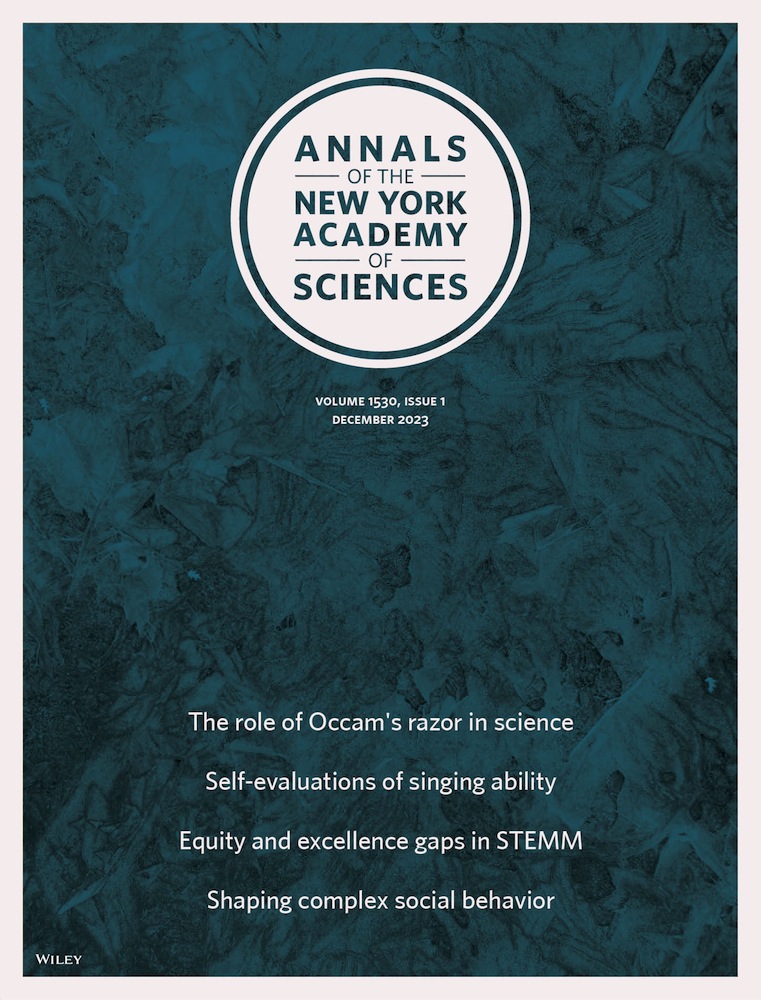Compensatory Mechanisms in Prefrontal and Reward Systems Reveal Delayed Brain Aging in Musicians
IF 4.8
3区 综合性期刊
Q1 MULTIDISCIPLINARY SCIENCES
引用次数: 0
Abstract
The reward system primarily releases dopamine in response to rewarding stimuli, including music. While compensatory interactions between the prefrontal and sensory cortices are essential in understanding cognitive aging in older musicians, the role of the reward system remains insufficiently understood. This study investigates whether the reward system supports compensatory mechanisms that mitigate age‐related cognitive decline in older musicians. We recruited four groups—younger musicians, older musicians, younger controls, and older controls—and collected functional magnetic resonance imaging (fMRI) data during pleasant music listening. A cross‐validated predictive model showed that the amplitude of low‐frequency fluctuations robustly predicted years of musical training, indicating a strong association with musical expertise. Older musicians exhibited the same activation in the ventral caudate and primary sensory regions as younger musicians but demonstrated lower spontaneous activity in the prefrontal cortex. Controls showed distinct difference between old and young groups. Functional connectivity and behavior correlation analyses further revealed distinct prefrontal–reward system coupling in musicians versus controls. These findings suggest that long‐term music training enables older musicians to maintain the activation of reward system to compensate for diminished prefrontal activation, thereby reducing cognitive load during music listening, indicating a potential compensatory mechanism that preserves cognitive function in aging musicians.前额叶和奖赏系统的补偿机制揭示音乐家大脑延迟衰老
奖励系统主要是在对奖励刺激(包括音乐)做出反应时释放多巴胺。虽然前额叶和感觉皮层之间的代偿性相互作用对于理解老年音乐家的认知衰老至关重要,但奖励系统的作用仍未得到充分了解。这项研究调查了奖励系统是否支持补偿机制,以减轻老年音乐家与年龄相关的认知衰退。我们招募了四组——年轻的音乐家、年长的音乐家、年轻的对照组和年长的对照组——并收集了在听愉快音乐时的功能磁共振成像(fMRI)数据。一个交叉验证的预测模型表明,低频波动的幅度有力地预测了音乐训练的年数,表明与音乐专业知识有很强的联系。老年音乐家在腹侧尾状核和初级感觉区域表现出与年轻音乐家相同的激活,但在前额叶皮层表现出较低的自发活动。在对照组中,老年组和年轻组之间存在明显差异。功能连通性和行为相关性分析进一步揭示了音乐家与对照组之间不同的前额叶-奖励系统耦合。这些发现表明,长期的音乐训练可以使老年音乐家保持奖励系统的激活,以补偿前额叶激活的减少,从而减少音乐听过程中的认知负荷,这表明一种潜在的补偿机制可以保持老年音乐家的认知功能。
本文章由计算机程序翻译,如有差异,请以英文原文为准。
求助全文
约1分钟内获得全文
求助全文
来源期刊

Annals of the New York Academy of Sciences
综合性期刊-综合性期刊
CiteScore
11.00
自引率
1.90%
发文量
193
审稿时长
2-4 weeks
期刊介绍:
Published on behalf of the New York Academy of Sciences, Annals of the New York Academy of Sciences provides multidisciplinary perspectives on research of current scientific interest with far-reaching implications for the wider scientific community and society at large. Each special issue assembles the best thinking of key contributors to a field of investigation at a time when emerging developments offer the promise of new insight. Individually themed, Annals special issues stimulate new ways to think about science by providing a neutral forum for discourse—within and across many institutions and fields.
 求助内容:
求助内容: 应助结果提醒方式:
应助结果提醒方式:


